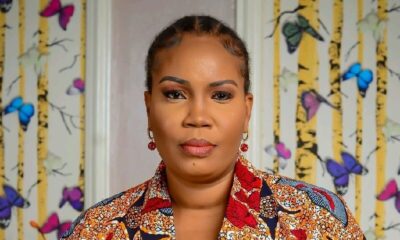News
Hater Nation?
 It’s award season again. The Golden Globes has just passed, the Oscar nominees have been announced and soon the festivals will start to do their rounds. It is no news that award shows will be marred by politics, accusations of them being popularity contests and general talks of their credibility. Did Katherin Biglow’s film “Hurt Locker” deserve to take the best director gong over her ex-husband James Cameron’s monster hit “Avatar”? The debate will go on. The same goes for awards right here in Nigeria.
It’s award season again. The Golden Globes has just passed, the Oscar nominees have been announced and soon the festivals will start to do their rounds. It is no news that award shows will be marred by politics, accusations of them being popularity contests and general talks of their credibility. Did Katherin Biglow’s film “Hurt Locker” deserve to take the best director gong over her ex-husband James Cameron’s monster hit “Avatar”? The debate will go on. The same goes for awards right here in Nigeria.
A friend and I recently got involved in a debate about the credibility of certain awards in Nigeria. Have some of them been created as means to make a living from sponsors? That was the first argument. The second was the selection process and the third was the quality and credibility of the judges. Then the fourth was all about criteria.
My issue was that of credibility. There will always be loopholes and glitches, but the credibility is what propels integrity. I put forward the argument that from the very beginning, individuals should have the chance to submit a portfolio, fill a free entry form and write a short personal statement as to why their work deserves to be short listed.
The reason for this is that both the judges and the public would get a chance to discover unknown individuals with varied kinds of work which no one would have been opportune to see in the first place as opposed to a somewhat randomised nomination.
As for the judges, it was important that besides having appropriate years of experience and expertise in the various fields on display, a criteria is also set where they can judge based on the necessary requirements and a little bit more. So, for instance, if it was a creative category, perhaps judging could be based on technicality, creativity, effort, accessibility and impact, as well as strength of portfolio in their respective areas of endeavour. Though we agreed to disagree, my friend pointed out that we, Nigerians, seemed to make a habit of criticising even when people were doing good things. In this case the award was honouring hard working people who would be an inspiration in the country.
Though I agreed that a fair amount of Nigerians are quite the critics, I am also equally aware that quite a lot of Nigerians have also made an art out of brown nosing. Take a look at people who win awards internationally. They get fanatically praised because they have been given a stamp of approval outside of the shores of Nigeria even though we had seen their work before, didn’t care much for it, never paid them any attention or perhaps didn’t feel its worth was justified prior to the accolades. We make demagogues out of them.
Criticism in many cases serves the purpose of creating discourse and dialogue. At times, it provides a source of checks and balances. I am an advocate of constructive criticism offered with proposed solutions as means to propel change and forward movement. Without it, what you have is a space populated with mediocrity and individuals refusing to challenge themselves because they have found their sycophantic audience. The fact is that most are willing to milk that space at any given chance.
But when do you think criticism becomes personal or just hating, as it is sometimes referred?
Photo Credit: www.joycdaniels.com























